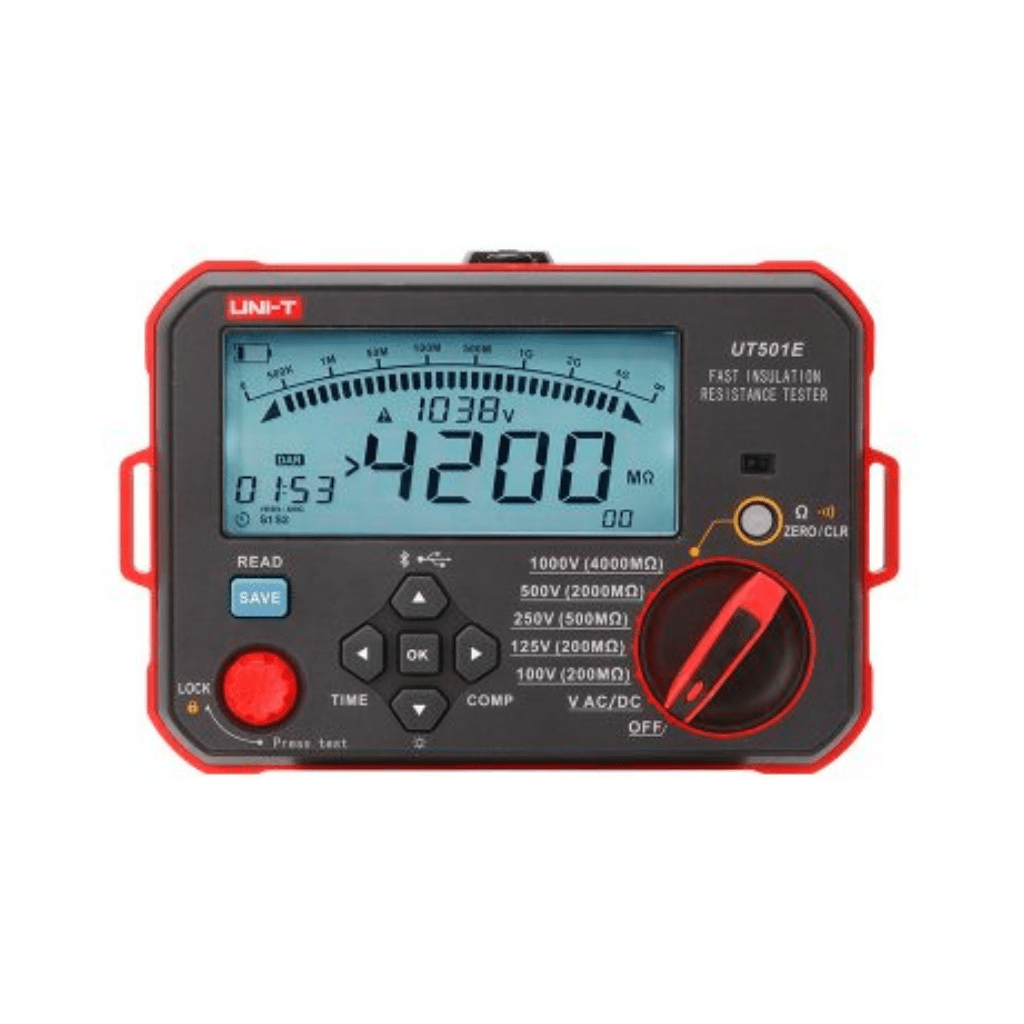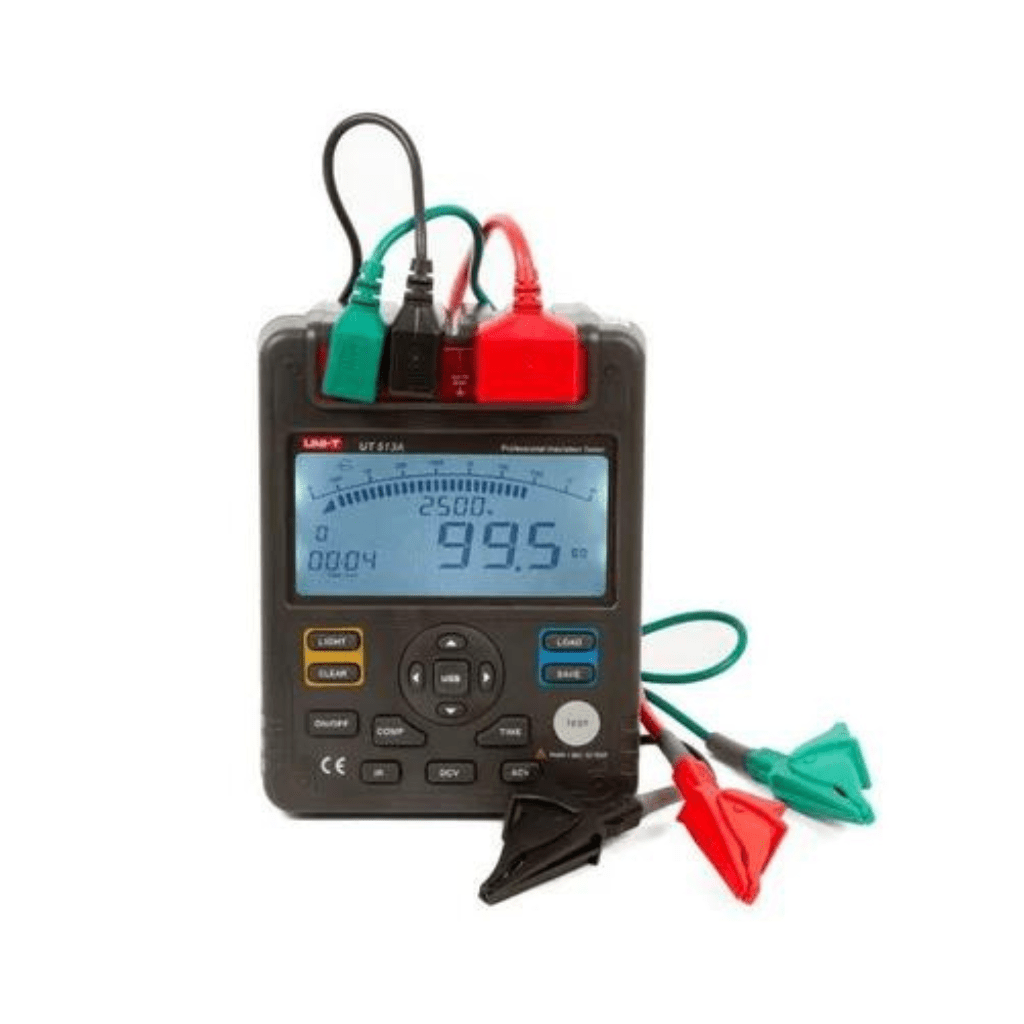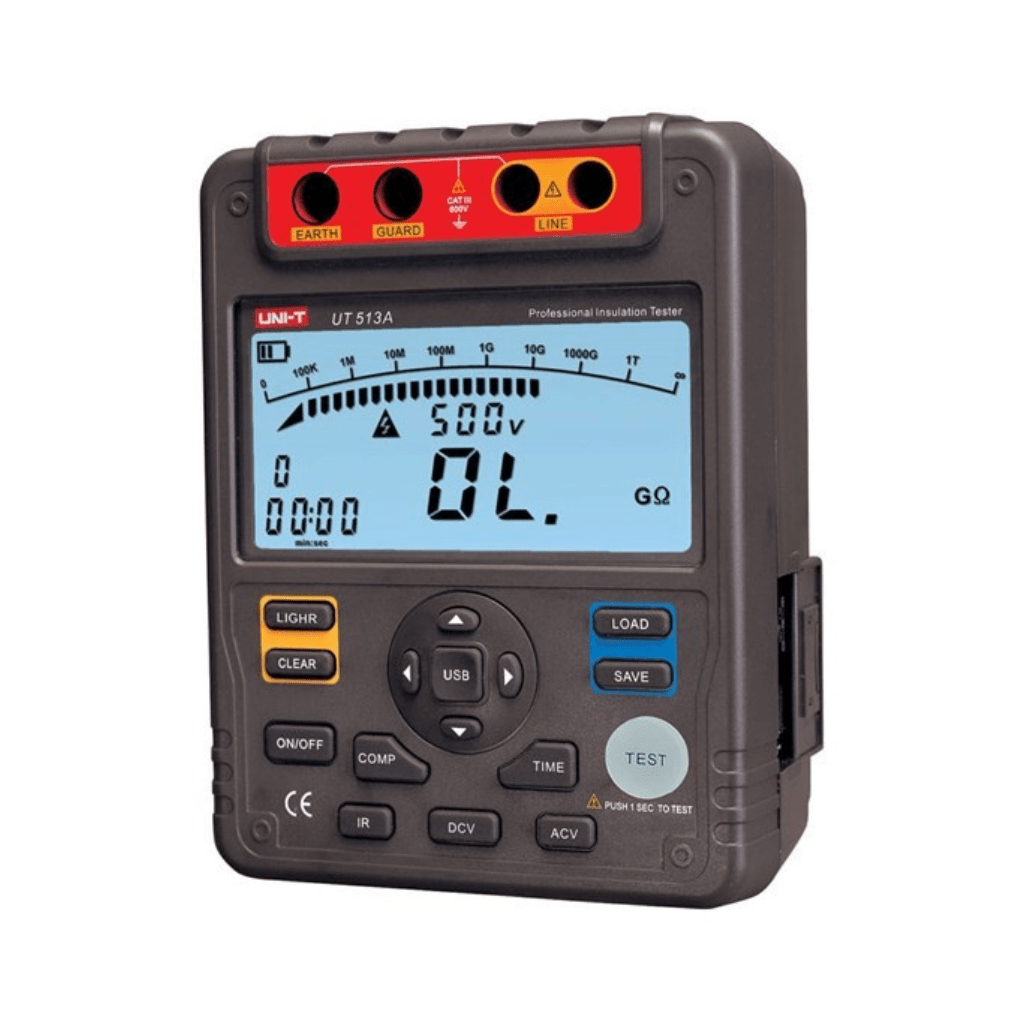Megger Meter: Uses and Types
Uses of a Megger Meter
A Megger meter, also known as an insulation resistance tester, is a specialized instrument used primarily to test the insulation integrity of electrical circuits and equipment. It is widely used in industrial, commercial, and residential electrical maintenance to ensure the safety and efficiency of electrical installations. Here are the main uses of a Megger meter:
Insulation Resistance Testing:
- The primary use of a Megger meter is to measure the insulation resistance of cables, motors, transformers, generators, and other electrical equipment. High insulation resistance indicates good insulation quality, while low resistance may suggest deterioration, moisture ingress, or potential faults.
Identifying Insulation Breakdown:
- By applying a high DC voltage (typically 500V, 1kV, 5kV, or higher) to the insulation, the Megger meter helps identify breakdowns or weak spots in the insulation that could lead to short circuits or equipment failure.
Preventive Maintenance:
- Regular insulation resistance testing with a Megger meter is part of preventive maintenance programs. It helps detect potential insulation problems before they cause serious issues, thereby reducing downtime and maintenance costs.
Testing Electrical Installations:
- Before commissioning new electrical installations, insulation resistance testing ensures that all wiring and equipment are properly insulated and safe to operate. This is often a requirement in many electrical codes and standards.
Testing Cable Integrity:
- A Megger meter is used to check the insulation quality of underground and overhead cables. It helps in identifying damaged or degraded insulation, which could lead to failures.
Motor and Transformer Testing:
- Insulation resistance testing is essential for electric motors and transformers to ensure that the windings are adequately insulated from the core and the frame, preventing potential electrical faults and extending the lifespan of the equipment.




